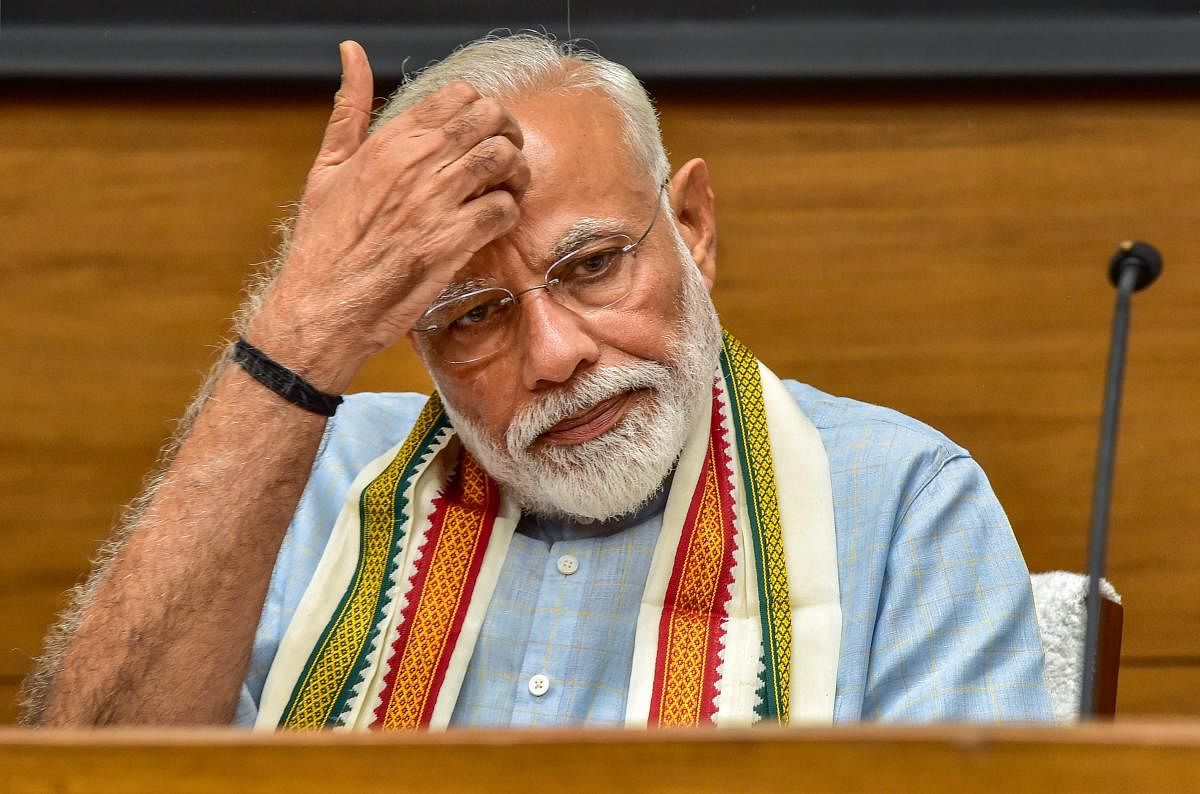
Prime Minister Narendra Modi’s office nudged the Election Commission way back in October 2014 into exempting him from a provision of the poll-time model code of conduct, which would have otherwise barred him from clubbing his tours for electioneering with official visits.
Less than six months after Modi took over as prime minister in May 2014, his office got the poll panel grant him an exemption from para (1) (a) of the Chapter VII of the Model Code of Conduct (MCC), thus allowing him to combine official visits with his tours across the country for seeking votes for BJP candidates. The Election Commission relaxed the poll code for the prime minister with unusual alacrity — on the same day, Nripendra Mishra, principal secretary to the prime minister, wrote to it asking for the exemption.
The commission allowed Modi to combine official visits and campaign tours in October 2014, just about a week before the last Assembly elections in Maharashtra and Haryana. The polling for Assembly elections in Jharkhand and Jammu and Kashmir also commenced about one and a half months after the poll panel accepted the request from the Prime Minister’s Office (PMO) to grant the waiver.
The model code of conduct exemption granted to the prime minister five years ago recently came under focus as the Election Commission cited it to defend its conclusion that the Niti Aayog had not violated poll code by seeking information from local authorities in some states and Union Territories to pass them to the PMO to help it prepare for Modi’s visits to campaign for BJP candidates contesting the Lok Sabha elections.
Para (1) (a) of the Chapter VII of the MCC bars union and state ministers from combining “official visits with electioneering work” as well as from using “official machinery or personnel during electioneering work”. The EC wrote (Letter No. 437/6/CG/2014-CC&BE) to the PMO on October 7, 2014, that the commission had “decided to exempt the prime minister from the operation of the model code of conduct provision pertaining to the combining of official visit with electioneering visit in the current case and for all future elections”.
The Election Commission wrote to Mishra (principal secretary at the PMO) in response to a letter, which its then deputy election commissioner Vinod Zutshi received from him on the same day on ‘Relaxation of Model Code of Conduct on PM’s visit’. Though Mishra wrote to the EC on October 7, 2014, and the poll panel replied on the same day, the commission did mention in its letter that it had decided to grant the exemption to the prime minister “after considering the matter”.
Zutshi, now retired, had a role in the Lok Sabha elections this year too. The former IAS officer was the EC’s special observer for polling in one of the two parliamentary constituencies in Tripura — a state which has been under BJP rule since February 2018.
The Congress, like other Opposition parties, has been accusing the Election Commission of being biased towards Modi and the ruling BJP. It lodged a complaint with the commission on May 1 alleging that the PMO had violated the poll code as it had made the Niti Aayog collect information on its behalf about the places Modi had planned to visit to campaign for BJP candidates.
The party lodged the complaint after an email from a Niti Aayog official to senior bureaucrats in some Union Territories became public. The Niti Aayog official asked the bureaucrat to send write-ups for the PMO on the “highlights and important features of UTs — historical, local heroes, culture, religious, economic (including details like major crops, industry etc.)” as the “Hon’ble Prime Minister is likely to visit the UTs very shortly”.
The poll panel, however, referred to the 2014 exemption granted to the prime minister to conclude that the Niti Aayog and the PMO had not violated the model code of conduct.
